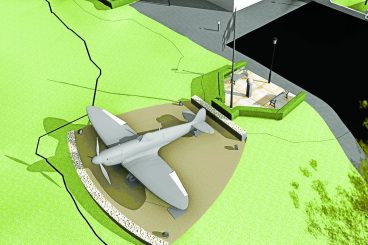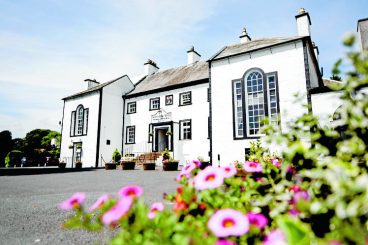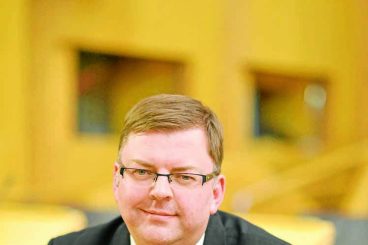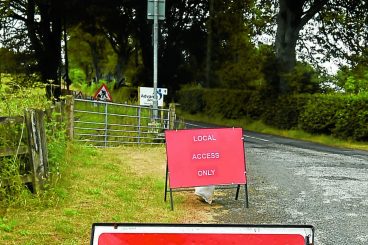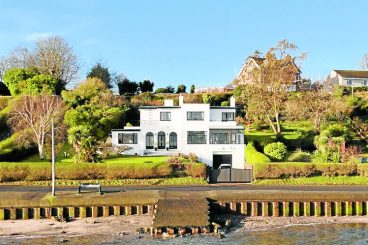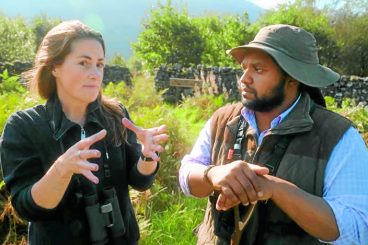CLIMATE change is “already here”.
That’s the message from Dumfries and Galloway Council’s environment champion in his 2019/20 report.
Cllr Dougie Campbell’s first annual review in the role warns of warmer and drier summers, wetter winters and more flooding as global temperatures rise.
And the frost which currently provides a sparkling wintry coat to the ground outside, he says, will disappear too in years to come if action is not taken.
Mr Campbell, who is a councillor for Dee and Glenkens, stresses in his report that “the quality of life for future generations in our region will be defined by our actions” and that “the poorest in society will be most badly affected by climate change.”
June will mark two years since the council became one of the first local authorities in Scotland to follow the national and devolved Governments in declaring a climate emergency.
Part of this declaration included a commitment to achieve net zero carbon emissions in the region by 2025, supported by a 12-point plan on how it could be achieved.
Outlining how effectively this has been implemented so far,
Mr Campbell said a working group was “monitoring progress,” whilst engaging with local organisations such as the Solway Firth Partnership and Aether.
He added: “An officer working group was also established following the adoption of the climate emergency declaration and has met on a monthly basis.
“The group brought together senior officers to influence and shape operational and budgetary decisions and, to enhance the adoption and embedding the climate emergency declaration in everyday activities and decision making. Their support has been invaluable to the Cross Party Working Group throughout this time and officers have an open invitation to attend our bi-monthly meetings.”
Despite the “unprecedented challenge” of 2020, Mr Campbell said that “significant progress” on the implementation of the plan has been achieved.
The environment champion added he is “really encouraged” by the community engagement observed throughout the year, however commented that the majority of this was “constrained by the onset of the Covid-19 pandemic.”
He said: “I’ve met with council directors and lead officers, a growing number of community climate action groups which have sprung up across the region, our youth councillors and Members of the Scottish Youth Parliament.
“I have also met with a wide range of non-governmental organisations and businesses including local housing agencies, Dumfries College, Galloway and Southern Ayrshire Biosphere, Galloway Glens Landscape Partnership, Crichton Carbon Centre, The Energy Agency, Natural Power and Drax (Galloway Hydro Scheme).”
Furthermore, a “strategic priority” adopted by the full council at their September meeting hopes to focus the council “at all levels” on tackling climate change.
This includes the need to educate and encourage understanding of how lifestyle impacts the environment, empower communities to reduce their carbon emissions, lead the transition to greener technologies and promote the regon’s natural environment.
Concluding, Mr Campbell states in his report that the council has experienced a “significant organisational culture shift,” since declaring a climate emergency in June 2019, adding: “I’m confident that we’re now well on the way to being an organisation which has embedded climate change into our strategic thinking, policy and practice.”
However, he said it was now a matter of urgency that in 2021, the local authority must focus its attention on “delivery of carbon reduction and adaptation projects across the council and in partnership with communities, stakeholders and strategic partners which will enable achievement of our strategic ambition for a carbon neutral region by 2025.”






